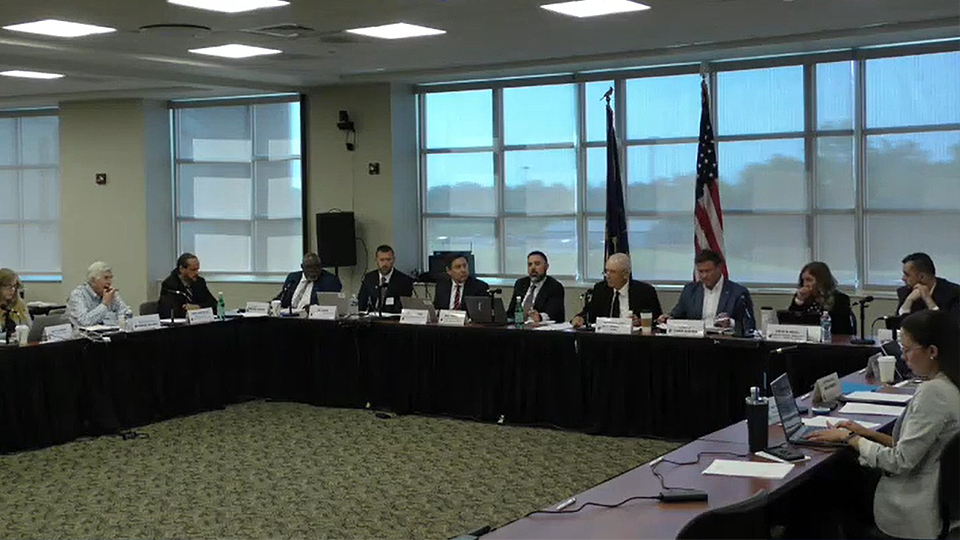Budget leaders approve $120M to attract $3.2B project
Subscriber Benefit
As a subscriber you can listen to articles at work, in the car, or while you work out. Subscribe Now
State budget leaders approved $120 million in incentives Friday for $3.2 billion manufacturing facility that the Indiana Economic Development Corp. said could bring 1,400 jobs to Indiana.
The IEDC declined to reveal details about the company, except to say it’s part of the “advanced technology automotive components” sector and would locate a plant somewhere in north-central Indiana.
Mark Wasky, senior vice president of community affairs at the IEDC, asked the State Budget Committee—a bipartisan group that includes House and Senate budget leaders and the state budget director—to authorize the money from a $500 million deal-closing fund the Legislature included in the most recent state budget. The incentive commitment would be based on project performance and compliance with job-creation and wage metrics that will be included in the IEDC’s final agreements with the company, Wasky said.
Wasky said that negotiations with the company are ongoing, with a decision on the project expected within the next 12 months. Should the company abandon the project or choose to locate in another state, the money would revert back to the deal-closing fund, Wasky said.
The company has accepted the $120 million incentive offer, he added.
The budget panel approved the agency’s request. The committee’s chair—Senate Appropriations Chairman Ryan Mishler, R-Mishawaka—was absent at Friday’s meeting, which was held at Ivy Tech Community College in Madison.
When pressed by reporters for more details, Wasky said the project, which is expected to generate 1,400 high-wage jobs, would be located somewhere north of Indianapolis and would not be part of the LEAP District, a planned manufacturing and innovation district in Boone County. LEAP is an acronym for Limitless Exploration/Advanced Pace.
“As the automotive industry transitions, they are investing in new technologies in support of their growth plans,” Wasky said. “These investments that the state has made to attract this and other projects in the last 12 months are positioning Indiana to be a leading location for companies as they are looking to expand their portfolio of products for customers.”
Wasky would not confirm if “new technologies” referred to electric vehicles.
One project that would fit the description is Stellantis’ plans for a second U.S electric vehicle battery factory, part of a joint venture with Samsung. The companies are already partnering to build a $2.5 billion facility in Kokomo, which is also expected to employ 1,400 workers, but they haven’t announced the location of its second plant.
The Kokomo Tribune reported in July that the IEDC purchased 93 acres adjacent to the plant, and IBJ previously reported that the IEDC was buying the land “to market to suppliers and other companies within the electric vehicle battery ecosystem.”
The news comes as the IEDC ramps up its efforts to bring “future-focused” companies to Indiana.
At its June meeting, the State Budget Committee voted to approve the IEDC’s request for $122 million to acquire about 1,000 acres of land—about $120,000 an acre for mostly farmland—in Boone County for a potential $50 billion semiconductor plant investment. That land is in the southwest corner of the LEAP District, a planned 9,000-acre advanced manufacturing hub north and west of Lebanon along Interstate 65, according to state officials.
Wasky said negotiations for that project remain ongoing.
The committee in June also approved the IEDC’s request for $35 million in performance-based grants for an electric vehicle battery manufacturing operation locating in St. Joseph County; $10 million in grants to General Motors for their $632 million investments in its Fort Wayne Assembly plant; $16 million to acquire 290 acres of property in the LEAP District for a potential $3.2 billion data center; and $20.2 million to acquire 220 acres in Boone County for an INDOT interchange and upgrades to local roadway infrastructure in support of Eli Lilly’s planned expansion.
Democratic lawmakers on the committee continued to express concerns about a lack of transparency from the IEDC.
“I’m still waiting to understand what is the real return on investment that we give these companies that come here, and what do they really create here,” said Rep. Greg Porter, the ranking Democrat on the committee.
